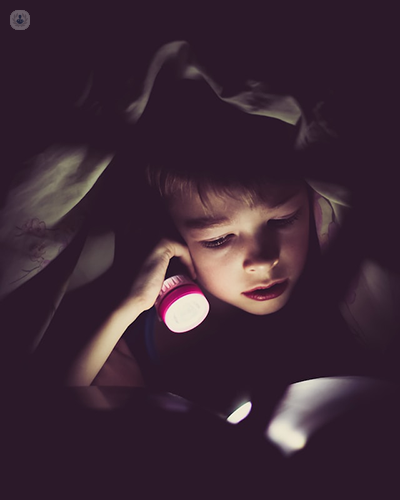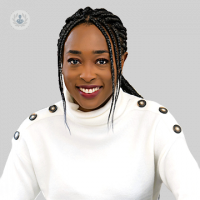Helping your child overcome sleep difficulties
Written in association with:When your child is experiencing sleep problems, it can be highly disruptive to their wellbeing, schooling and overall health, as well as affecting normal family routines. In this informative guide for parents, highly esteemed consultant paediatrician Dr Chinwe Ude shares her expert insight on the importance of seeking help for your child’s sleep difficulties and detailed advice on overcoming these issues.

How can sleep difficulties affect children?
Sleep difficulty is very common in children. In some cases it can be a transient symptom. However, if not promptly identified and managed, it can become a difficult and intrusive problem that affects the child’s health. Sleep difficulties can cause new symptoms or worsen pre-existing health conditions like migraines, epilepsy, arthritis, or allergies, amongst others.
What can cause sleep difficulties in children?
Children may sleep poorly for many reasons including obstructive sleep disorders, airway problems, restless leg syndrome, and many more. They may also suffer from chronic poor sleep due to their developmental age and behavioural or environmental challenges. Many times, it is a combination of a few factors which makes it very difficult for parents to decipher a cause and therefore a solution.
What happens if a child continues to sleep poorly?
Good quality sleep is vital for your child’s wellbeing and health. Children under five years old should sleep between ten and sixteen hours a day (including naps) depending on their age. Those above five years old should sleep from eight to ten hours a day.
Children who suffer from poor sleep have difficulty with attention, memory and concentration. They struggle to regulate their emotions and this, in combination with its effect on memory, can lead to negative outcomes in their individual, social and educational attainments. Sleep is also essential for a child’s physical health including their immune defence against infections, their growth and their development.
What should you do if your child is a poor sleeper?
Firstly, do not panic! Many children find it difficult to settle down to sleep and would wake up during the night, especially if they are very young. Many older children and teenagers struggle with anxiety, especially in the aftermath of the pandemic, which feeds into a vicious cycle with poor sleep.
The key is to seek expert help as soon as possible so that it does not ingrain further. Consistent and calming bedtime routine (sleep hygiene) improves sleep in many children. If you have concerns that your child’s sleep problem is persisting and is significantly impacting on them and on your family, it is important to seek out a doctor who is experienced in diagnosing and managing sleep problems. A doctor with expertise in sleep difficulty would be able to take detailed information and assessment of the child, and decipher the key factors that are cause the sleep difficulty.
Intervention may then range from formulating a strategy around routines to a prescription medication that could support better sleep. In my years of experience managing children who suffer with sleep difficulties, the majority of them improve their sleep with careful strategies around their sleep routines. In addition, many would go on to have better control of their other health conditions as their sleep improves. Their behaviour, concentration, memory and mood improve. Parents also benefit when their children sleep better. After all, happy child, happy parent!
If you are concerned about your child’s sleep habits and wish to schedule a consultation with Dr Ude, you can do so by visiting her Top Doctors profile.



